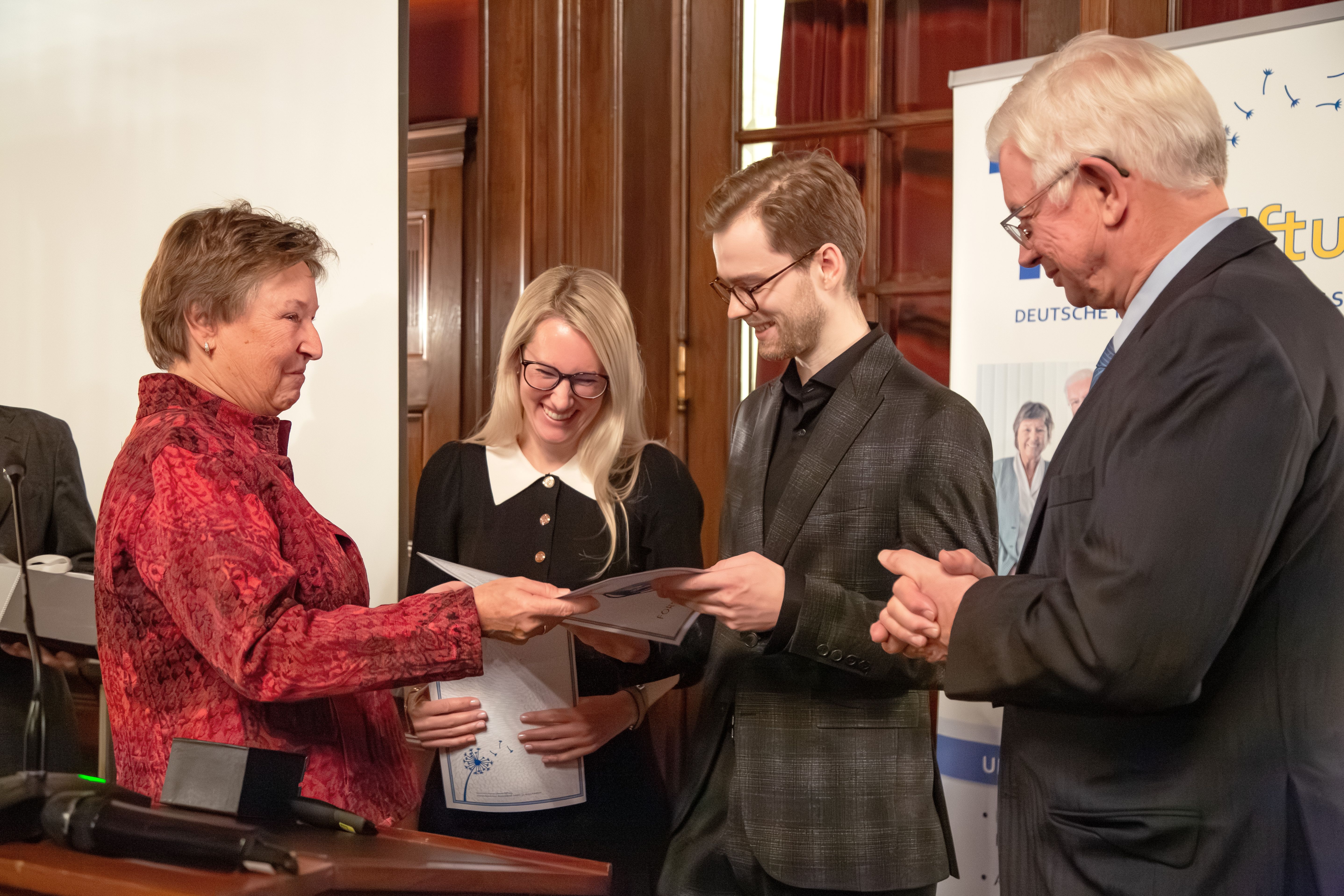
(Frankfurt, Vienna, 16 October 2025) Tuberous sclerosis is a hereditary disease that can cause abnormal growths in the brain, changes in the skin and sometimes the development of tumours in vital organs such as the heart, kidneys and lungs. Oliver Eichmüller from the Department of Pediatrics and Adolescent Medicine at MedUni Vienna has been awarded the Research Prize of the German Tuberous Sclerosis Foundation for his research in this field.
The assistant physician, who specialises in paediatric neuro-oncology, shares the €10,000 prize with his research colleague Nina Stefanie Corsini from the Institute of Molecular Biotechnology at the Austrian Academy of Sciences.
As part of their award-winning study, which the jury described as groundbreaking (Amplification of human interneuron progenitors promotes brain tumours and neurological defects, Science 2022, doi: 10.1126/science.abf5546), brain organoids derived from stem cells from patients were used to investigate the development of typical brain changes in tuberous sclerosis (TS). Oliver Eichmüller, Nina Stefanie Corsini and their team discovered a special group of immature nerve cells from a specific area of the brain (CGE) that is particularly susceptible to genetic changes and shows pathological growth due to low levels of TSC proteins. These cells, known as CLIP cells, were identified as the common origin of both cortical tubers and TS tumours – even without complete loss of the second gene.
This is the first time that typical TS brain lesions such as tubers and tumours have been successfully replicated in the laboratory using human brain organoids. This represents a significant advance in modelling the disease and enables deeper insights into disease mechanisms, such as the development of epileptic networks, which is supported by research funding from the TS Foundation.
About the person:
Oliver Eichmüller studied human medicine at the University of Heidelberg and began working on tuberous sclerosis as part of his medical dissertation in the laboratory of Prof. Jürgen Knoblich at the Institute of Molecular Biotechnology of the Austrian Academy of Sciences. Since the beginning of 2024, he has been working as an assistant physician in the specialised field of paediatric neuro-oncology at the Department of Pediatrics and Adolescent Medicine at the Medical University of Vienna. In addition to his clinical work, he is involved in research projects in paediatric neuro-oncology at the Medical University of Vienna and on TS at the Institute of Molecular Biotechnology. His work on TS has already been recognised with the Ernst Niedermeyer Prize in 2022 and the Alfred Hauptmann Prize in 2023.